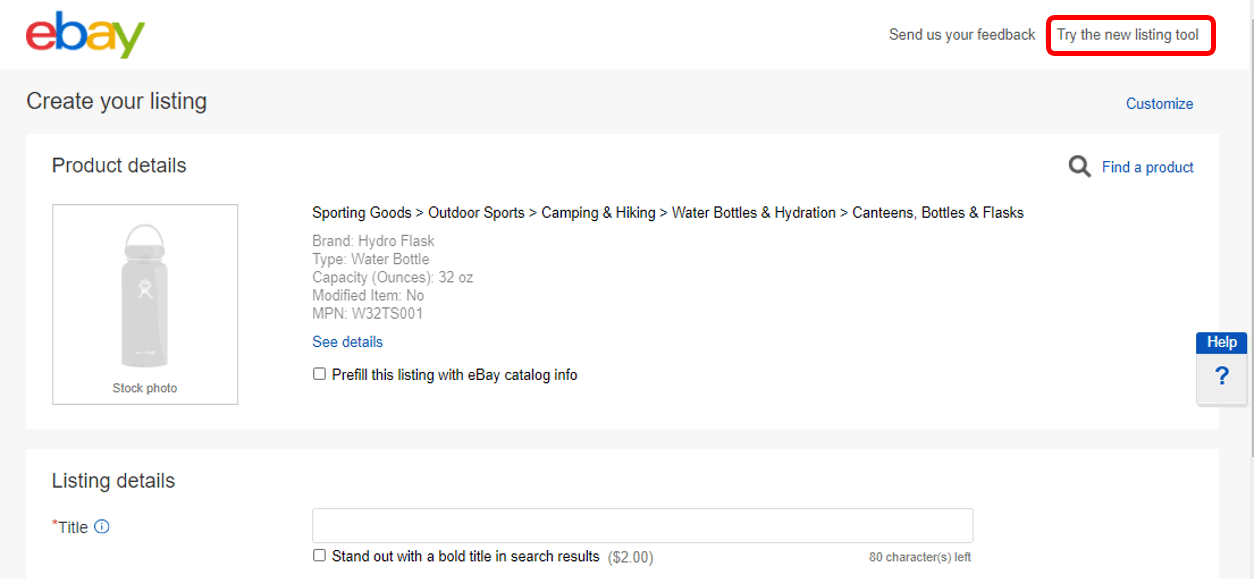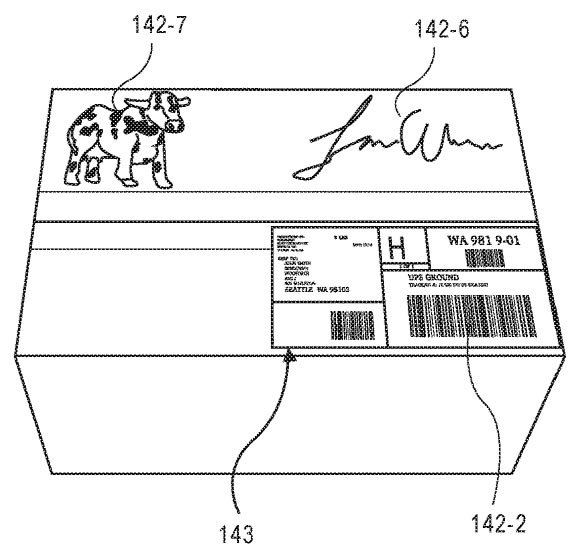The Web Retailer News Digest for January 22nd, 2021
Above: A computer rendering of the Amazon processing center under construction in Kentucky
Analysis from Marketplace Pulse shows that 63% of new sellers joining Amazon.com are based in China. The proportion is even higher for Amazon’s marketplaces in Europe and Japan. As for sales, Chinese sellers now account for 39% in the US, and over 50% elsewhere.
By their own admission, Amazon has been aggressive in pursuing Chinese sellers. They have sold themselves as the ideal vehicle for Chinese factories to sell worldwide, and build their own brands instead of just making products for everyone else.
The vast majority of consumer products are made in China. If all those Chinese factories are selling directly, is there anything left for domestic businesses?
Forget it Jake, it’s Chinazon
This week, Marketplace Pulse published new findings on the number of Chinese businesses selling directly to consumers through the Amazon marketplace.
In the US, businesses based in China made up 63% of new sellers in January 2021, more than doubling since 2019 when the proportion was 28%. In fact, Chinese businesses have represented more than 50% of new sellers joining the marketplace every month since March 2020.
Joining Amazon is not the same as selling on Amazon, of course, but the data shows that these aren’t just dormant accounts. Earlier research by Marketplace Pulse in September 2020, based on seller feedback received, found that 39% of marketplace sales on Amazon.com were made by Chinese sellers. In two countries this is even beyond the halfway mark, at 58% in Canada and 51% in Spain.
Domestic sellers, whether in the US, UK, Europe or Japan, can be forgiven for thinking that these Chinese businesses are acting on their own initiative to enter the Amazon marketplace. But they are not. Amazon has worked hard to recruit Chinese sellers at least as far back as January 2015.
In an internal Amazon email (PDF) made public as part of the government investigation into online platforms, a former executive boasted that Amazon was the best place for Chinese factories to sell globally and that they had more than 100 Amazon staff supporting them. They were clearly not ignorant of the impact on domestic sellers, saying “the risky downside to this is that US and EU based sellers do not find this avalanche of China based sellers very amusing”.
An interesting choice of words, but true. Few domestic sellers have found amusement in the flood of Chinese sellers that have made it impossible to compete in many segments. The competition now, in many areas, is just among different Chinese factories. Domestic sellers don’t stand a chance. Amusing? How about “devastating”.
Amazon announcements and news
Amazon’s air operations continue to grow, with 153 flights in one day across 40 airports worldwide, reports Bloomberg. Amazon’s futuristic drone fleet is yet to emerge, as its parcels are flown around in bulk through much more conventional cargo routes. At the US’s sixth largest cargo airport in Kentucky, Amazon is constructing a new 798,000-square-foot mile-long processing center.
Amazon is also opening five new facilities in Quebec, Canada, including two sorting centers and three delivery stations. In the US, Amazon is opening fulfillment centers and shipping stations at the rate of one every 24 hours.
The latest annual update to the US government’s Notorious Markets for Counterfeiting and Piracy list, released in the last few days of the Trump administration, included Amazon marketplaces in the UK, Germany, Spain, France and Italy. It said that rights holders were concerned that Amazon did not vet sellers sufficiently, and that counterfeit removal processes were too burdensome. The list features a total of 39 online markets, many of which are hosted in Russia, Asia and Eastern Europe. eBay and other US-owned marketplaces are notably absent.
In this week’s only Brexit news, Amazon has released guidance on shipping products between Northern Ireland and the rest of the UK. As one of the major sticking points in the EU-UK trade agreement, along with fishing rights, British businesses now face the strange prospect of completing customs declarations for shipments that do not leave the country.
Other marketplaces
Walmart ecommerce chief Marc Lore, who has been behind the company’s online renaissance of the past few years, is leaving the company. After selling Diapers.com to Amazon in 2011 for $545 million, and Jet.com to Walmart in 2016 for $3.3 billion, Lore is moving on to even greater projects. He plans to build “a city of the future” supported by “a reformed version of capitalism” which will be “a new model for society”. Thank heavens for that. With all his success in business behind him, we were concerned that Lore might go a little woo-woo.
Life without Lore at Walmart features drone deliveries to customers in Arkansas and Missouri. A new beta test with drone company Zipline will see medical supplies from Walmart’s Pea Ridge store quite literally parachuted down to customers.
Harking back to the days of illegal moonshine, a brand of hand sanitizer sold on Alibaba, eBay and Wish has been banned by UK authorities for containing a hazardous chemical. The product was found to contain methanol, also known as wood alcohol, which can cause blindness and even death. Methanol has also been found in hand sanitizers in the US.
eBay is releasing a new listing tool that sellers are being invited to try out. It will be rolled out as the default starting from February. eBay says the new tool will provide a streamlined listing experience across devices and allow them to deliver new features, such as photo background removal, more quickly in the future. eBay also announced that its managed payments solution will be expanded to sellers in China.

Secondhand fashion marketplace Poshmark had a successful IPO last week, with the shares soaring 140% on the first day of trading. Fast Company spoke with CEO Manish Chandra about the phenomenal growth of online marketplaces selling used clothes.
Indian marketplace Flipkart, which is owned by Walmart, is partnering with 5,000 stores which will accept its SuperCoin loyalty rewards as payment for purchases. Customers who earn SuperCoins on Flipkart will be able to spend them at physical stores using the Flipkart app. Loyalty programs are popular with a number of Asian marketplaces, but have made little impact in the West.
Alibaba founder Jack Ma, who mysteriously disappeared from public view for two months after the Chinese government halted the IPO of Alibaba’s financial division Ant Group, has resurfaced in a low-key video address to rural teachers. Ma had been critical of China’s state-backed banks and China announced an investigation into the country’s giant internet companies, including Alibaba. Ma, a former teacher himself, has been a colorful public figure in China as well as one of the world’s richest and most powerful people.
For some sellers, Etsy will be holding back a percentage of each sale to allow for future order disputes and refunds. Etsy expects that less than 1% of sellers will be affected, as the new reserve is targeted at new sellers on the platform. The marketplace isn’t holding back when it comes to executive pay, however, awarding a $9 million bonus to “retain, incentivize and motivate” CEO Josh Silverman. Isn’t Etsy’s boom in sales of floral-print facemasks enough of an incentive for Mr Silverman? Apparently not.
Ecommerce insights
Seattle tops the table for online spending during the pandemic, reports the Seattle Times. The Household Pulse Survey found that 67% of Seattle residents had increased the amount of shopping they do online, against a national average of 55%.
Webinars in the week ahead
Amazon advertising’s webinar program continues with 20 webinars in six languages, covering Sponsored Products, Sponsored Brands, reporting, optimization and tips.
eComEngine and Orca Pacific are running a webinar on Jan 28th, about selling on Amazon for direct-to-consumer brands.
Webinars taking place for UK online sellers include a shipping-focused event from Tamebay and GFS (Jan 27) and sessions from Amazon on brand building (Jan 26) and getting started with FBA (Jan 28).
And finally…
Amazon thinks it has invented the idea of reusing shipping boxes, judging from a new patent filing. To give Amazon some credit, the patent includes a system where a box can be reused without the sender having to attach a new shipping label.
But it also includes breathtaking innovations such as the insight that cardboard boxes can be collapsed for storage. Boxes can also be made of more durable materials to allow repeated use. But get this, boxes could even feature lids to “enable/prohibit access to items contained within”. So much is possible with boxes! Who knew?
Amazon doesn’t seem to realize that eBay sellers have been reusing cardboard boxes, and just about anything else to hand in their homes, to package sold items for 25 years. They are usually encased in so much tape that it takes the skill of a surgeon to open them without damaging the contents. If Amazon could invent a box cutter that cuts boxes and nothing else, then that would be worth having.

Superb Articles !!